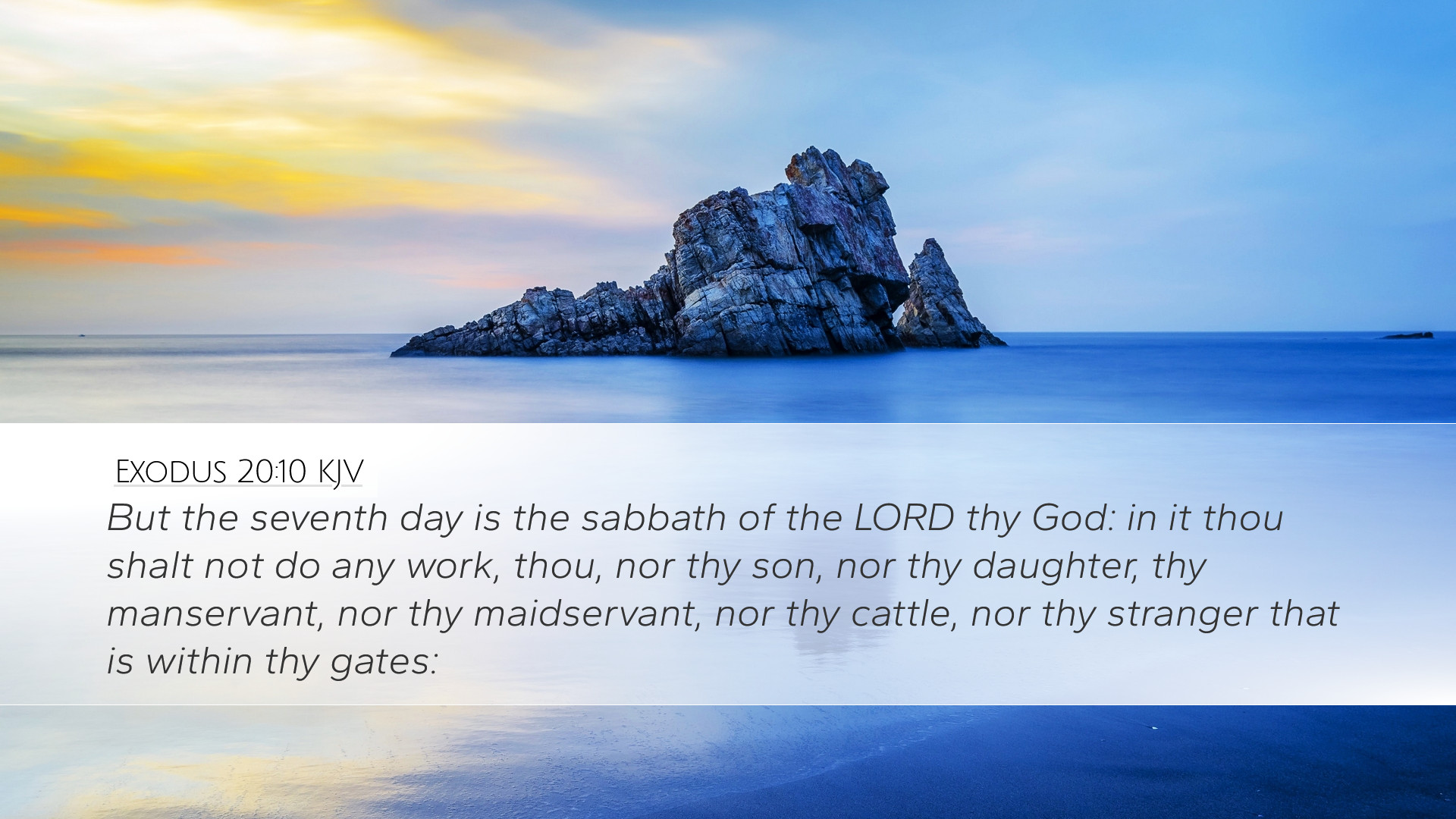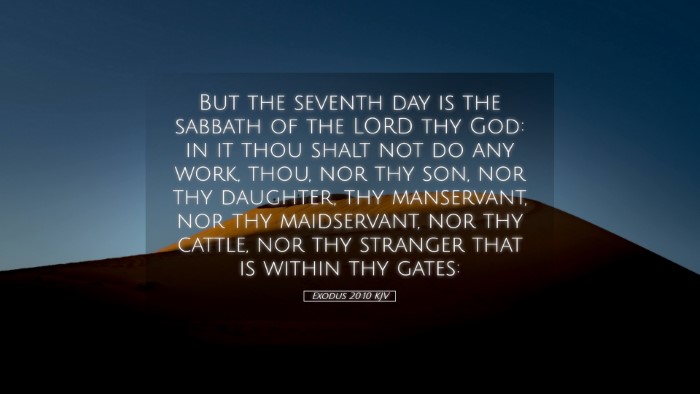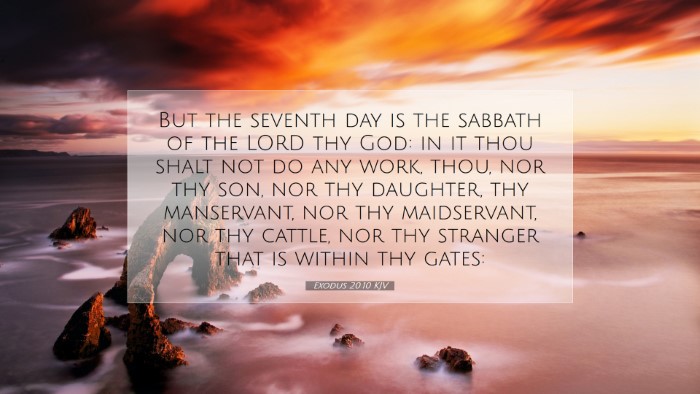Exodus 20:10 Commentary
Verse: "But the seventh day is the sabbath of the LORD thy God: in it thou shalt not do any work, thou, nor thy son, nor thy daughter, thy manservant, nor thy maidservant, nor thy cattle, nor thy stranger that is within thy gates."
Introduction
The commandment to observe the Sabbath is foundational in the Judeo-Christian tradition. This verse not only delineates the actions to be avoided on the Sabbath but also encapsulates the broader principle of rest and divinely ordained rhythm in creation and human life. The following commentary synthesizes insights from several public domain theologians, including Matthew Henry, Albert Barnes, and Adam Clarke.
1. The Nature of the Sabbath
Matthew Henry on Rest: Henry emphasizes that the Sabbath is a day set apart for rest and worship. It is designated for man not just to cease from physical labor but to engage in spiritual refreshment and communing with God. According to Henry, the Sabbath reminds believers to trust in God’s provision, resting in the knowledge that He sustains life.
Albert Barnes on Meaning: Barnes illuminates the significance of the Sabbath as a day of cessation from all forms of work. He argues that this commandment protects the dignity and equality of all individuals—ensuring that even servants and animals are included in this time of rest, which fosters community and familial ties in honoring God.
2. Inclusivity of the Command
The verse here stresses the expansive scope of the Sabbath rest, directing that not only the master but also their children, servants, and even animals should refrain from work. This principle is examined further below.
2.1 Matthew Henry on Inclusivity:
Henry notes that the inclusiveness of this commandment promotes social justice by advocating for the equal treatment of all individuals. This rest is not limited to the powerful; rather, it extends to everyone within the household and community, reflecting God's care for all His creation.
2.2 Adam Clarke’s Interpretation:
Clarke reflects on the necessity of the Sabbath as a day meant not merely for inactivity, but as an opportunity for all forms of renewal, including spiritual, emotional, and physical rejuvenation. He underscores that all beings under one’s authority are to be released from the burdens of work.
3. The Purpose of the Sabbath
Divine Command: The primary purpose of the Sabbath is to honor God. It is seen as a day of complete devotion to His majesty and holiness. This is where Clarke and Barnes articulate how the observance of the Sabbath serves as a perpetual reminder of God’s creation.
Matthew Henry's Perspective: Henry states that the Sabbath affirms God’s role as Creator and Preserver. By resting, humanity is acknowledging God's sovereignty over time and His ongoing relationship with creation. This perspective invites believers to remember the spiritual dimension of their earthly existence.
4. Application for Today
The relevance of the Sabbath applies not only to ancient Israel but also to contemporary society. Many scholars note the shift in modern culture towards constant work and activity, which undermines spiritual health and communal bonds.
4.1 Spiritual Rest:
According to Henry, the weekly Sabbath provides an essential rhythm for spiritual rejuvenation. It encourages believers to step back and reflect on God’s workings in their lives. Thus, the Sabbath is not merely a day off; it is a sacred opportunity for deepening one’s relationship with the Divine.
4.2 Social Justice and Equality:
Both Barnes and Clarke note the commandment’s role in promoting social justice. The Sabbath serves as a reminder that rest is a right of all, not just those in positions of privilege. This collective withdrawal from work fosters a society where everyone recognizes their worth and dignity.
5. Conclusion
The instructions given in Exodus 20:10 outline more than the cessation of labor; they offer a profound worldview that emphasizes rest, equality, and spiritual devotion. The insights from Henry, Barnes, and Clarke underline the timeless significance of the Sabbath in both historical and contemporary contexts. As believers observe the Sabbath, they are invited to enter into a rhythm of life that acknowledges the faithfulness of God and the dignity of every fellow human being, creating a more just and spiritually vibrant community.


